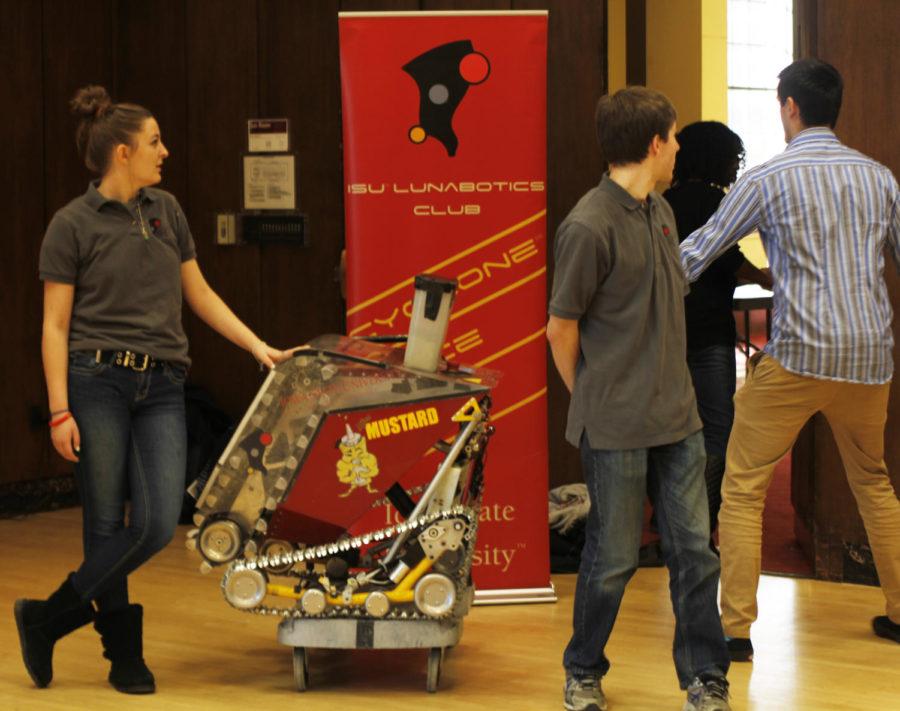Mass: Artificial intelligence must be handled carefully
Alexandra Kelly/Iowa State Daily
The ‘ISU Lunabotics Club’ showcases one of their robots at ClubFest Jan. 18. More than 100 clubs had booths representing their organization/club/group.
June 1, 2018
Artificial intelligence will revolutionize the world.
Many have heard of terms related to it like machine learning, neural networks and data mining. Besides the computer scientists and engineers that are developing these technologies, though, very few completely understand what they mean.
This new technology will have a tremendous impact on the lives of all people in the future. It is, therefore, vital for people to understand how they will be affected.
Google recently held its annual Google I/O developer conference near its headquarters in sunny Mountain View, Calif.
While the company showed off innovations on its already existing products like the new Android P version of its popular smartphone operating system and improved walking directions for Google Maps, the showstopper was something we had never seen before: a new service called Google Duplex.
Duplex is an artificial intelligence system which calls restaurants, hair salons, mechanics and other businesses to book reservations for you without you interacting with anyone at the business.
When calling on your behalf, Duplex is able to respond quickly and ask new questions based on the information given to it.
While we have yet to see Duplex in the real world, a beta version is coming this summer. A demo reveals how close artificial intelligence systems are to becoming indistinguishable from humans; in other words, how close our innovations are to passing the legendary Turing test.
An interesting feature of Duplex is its insertion of speech disfluencies like “hmm” and “um” into parts of the conversation when it is trying to come up with the best response, something that makes the conversation more natural.
As with all new technologies, the pros and cons of Duplex must be carefully considered.
On one hand, it is disconcerting to think that in the very near future you could receive a phone call and not know if you were talking to a robot or a human. Additionally, Duplex could be employed to handle unpleasant or awkward conversations that its owner should handle personally.
However, the amount of time that Duplex can save its users is not insignificant. It can also allow reservations to be made at smaller businesses that don’t have a website or app.
Duplex also has potential to benefit businesses as well. For example, it can be deployed to take calls while the business is closed. Reservations and orders can be placed and ready for the business owner to peruse in the morning.
The rise of Google’s new system only serves to illustrate how quickly artificial intelligence is advancing. Systems are quickly reaching the point where audio and video can be convincingly faked, bringing a whole new meaning to fake news and raising even more questions about what can be believed on the internet.
Cambridge Analytica used Facebook and machine learning to try and sway voters in the 2016 election. Microsoft is applying artificial intelligence to health care with its Healthcare NExT initiative to try and find treatments to diseases like cancer.
Artificial intelligence is coming and we need to have a comprehensive understanding of how it will affect us in the future. Whether it is used for good or evil is largely up to us. As the consumers that support the companies who are developing these technologies, we have a chance to influence this exciting new advancement. We can only do that, though, if we are fully informed.







